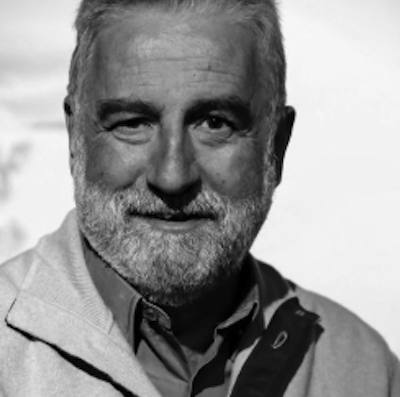Rafel Nadal
“Journalism is a trade. If you can manage the tools it will work out for you, and you’ll be sure enough about the ground you’re covering. Yet, when you’re writing a book, you’re really alone, you have many doubts, and you need to get to the end so you can show it to someone. But being a writer is much more exciting. I’d find it very stimulating to have an intense relationship with my publisher, Anglo-Saxon style. I want it to end up with my way of seeing things winning the day, but I like it when people tell me what works and what doesn’t.”
“In my books, there’s a lot of memory. The events and characters are real. But I haven’t wanted to write autobiography or a history of my family. I’ve portrayed the epoch using the tools available to me because it would have been quite stupid not to use them. A petit-bourgeoise Girona family with twelve siblings is fertile literary ground and that is where Quan érem feliços (When We Were Happy) came from. And having two geographically distant branches of the family, one in Catalonia and one in the Champagne region of France, with entrepreneurs willing to take risks again and again, also offers powerful material to play with. The result is Quan en dèiem xampany (When We Called It Champagne). My great-grandfather’s daughters sacrificed their personal happiness to throw themselves into the family business. At the same time, they had very strong characters and were willing to strike major blows and forego everything except their freedom. The books show my personal view of all this, filtered through hours of conversation in such a big family, over many lunches and in many gatherings. In conversations you distort reality, but you keep creating a new one which somehow ends up as literary, something that you reconstruct as you tell it. You see when your nephews get bored and leave the table, and when they come to listen. It all helps you to find the necessary pace because real memory ends up being transformed into a kind of fiction that is able to universalise some sensations and passions.”
“It happens in Italy, between the two world wars, born of a story I learned of and that greatly impressed me when I was travelling there. In it, I work with the milieu of a farming family and a bourgeois family in the south of Italy. […] The novel [La maledicció dels Palmisano – The Palmisano Curse] is about how difficult it is to take sides in a time of conflict. I have the sensation that you don’t choose your side. Your side chooses you first. But, yes, you can choose the ethical and moral attitudes with which you face the conflict. You have great freedom to do good or to do evil from whatever trench you end up in. Changing sides involves a decision that is too important, and a betrayal of your own people. I was keen to reflect on this subject, but taking it well away from the present Catalan context because it seemed to me that, if I didn’t, people would read it according to their political interests and I want to present a more objective and detached view.”
Eva Piquer. "Rafel Nadal: 'Tu no tries el bàndol, el bàndol et tria a tu'", Catorze (November 2014).
“I wrote a trilogy about war, groups, and individual freedom, beginning with Quan en dèiem xampany, where I go deep into the First World War. This is followed by La maledicció dels Palmisano, about the Second World War, and, finally, I close the trilogy with a book set in Catalonia,La senyora Stendhal(Mrs Stendhal), where fidelity to your side is fundamental.” […] “El fill de l’italià (The Italian’s Son) has a bit of Palmisano and a bit of Stendhal. But where, with the others, I explored collectives, in this novel the inquiries are more individual.”
Jordi Nopca. 'Rafel Nadal guanya el premi Ramon Llull 2019', Ara Llegim (25/01/2019).




